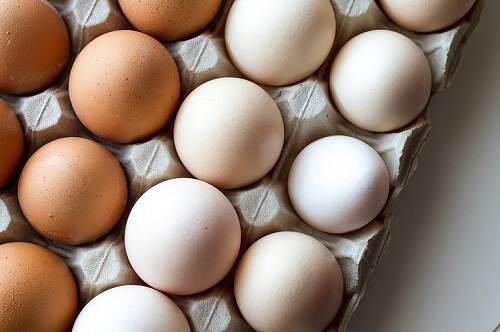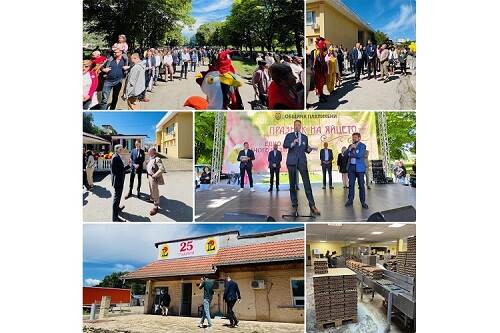Egg production – meeting point between the Netherlands and Bulgaria
Bulgaria – with its talented and dedicated people, fertile soils and world class grain production. And the Netherlands – with its entrepreneurial spirit, sustainable approach and famous poultry farming. The 25-year-old business adventure of two Dutch brothers in Bulgaria.
The history
It is the second half of the 90s in Bulgaria. A 4-digit inflation and full-fledged economic collapse has shook Bulgarian society, which was trying to transition from a failed centralized and planned to an open market economy and restructure its public institutions and foundations from single-party-centered totalitarian to more independent, professional and democracy-driven. European Union and the billions of its CAP were not even in sight. Sounds like adventurous environment by any measure.
At that time the two van Leeuwen brothers – Erik and Jack, searched for opportunities to preserve and grow their egg and feed business. They noticed the tremendous potential Bulgaria has – domestic production of cheap and high-quality raw materials and the large pool of skilled people recently laid-off from the collapsing industrial sector. Furthermore, the strategic geographic location and the geopolitical heading of Bulgaria towards EU and NATO accession meant significant export opportunities on EMEA markets. Thus, they founded Hipro Bulgaria, reconstructed an old poultry farm near the town of Pavlikeni and on Christmas Eve of 1999 produced their first egg in Bulgaria, becoming also one of the foreign pioneers in Bulgarian agri sector after the economic opening.

The present
With a lot of persistence, hard work and entrepreneurial spirit, 25 years and 1,5 billion eggs later, Hipro is among the leading egg producers in Bulgaria and successfully competes on export markets. The company brings needed jobs and value-added for Bulgarian agriculture, and is a vital part of the social and cultural life in the small Pavlikeni community. For 13 editions in a row it supports the Festival of the Egg, organized by the municipality, along with other local initiatives and causes.

Aiming at high production standards, last year Hipro started a 3-million euro investment program in facility reconstruction and installing barn systems for layers. Their goal is to produce eggs with the lowest possible CO2 footprint – all raw materials are locally sourced, manure is turned into organic fertilizers and 840 solar panels are about to make the farm entirely energy independent.
The challenges
However, Hipro along with other Bulgarian egg producers are facing severe challenges, exacerbated by the dynamic geopolitical and economic environment. The avian influenza is also affecting Bulgarian producers and their operations in a similar way to their colleagues in the Netherlands and across Europe. They are forced to invest heavily in biosecurity measures in order to prevent heavy losses, but risks and stress for entrepreneurs still remain. All these measures increase production costs that are reflected in margins or sale prices. Producers also suffer from EU regulations and requirements, perceived as heavy and uncertain (i.e. phasing out of laying hens cages), with related investments again pushing production costs higher.
The opening of the EU market for Ukrainian eggs and products, since the Russian invasion started, caused significant competitive and prices pressures, due to the lack of level playing field between the EU regulated production and Ukraine. Also a strongly depreciated local currency, cheaper grains and a lack of export alternatives, make Ukrainian eggs more attractive for traders and consumers.
Bulgarian egg production
Poultry is among the most developed, industrialized, concentrated, and professional branches in Bulgarian agriculture. As of December 2023 Bulgaria had approx. 6,6 million laying hens – with that number varying between 6,5 and 7 million in recent years. The annual egg production (from laying hens) is about 1,3-1,4 billion, of which approx. 200 million are hatching eggs (a growing niche where Bulgaria strengthened its positions in recent years). 45 holdings raise between 10 000 and 100 000 laying hens and the figure surpasses 100 thousand in another 18.
The Bulgarian poultry sector is also successfully competing on foreign markets. Apart from grains and oilseeds, it is among the very few agri-food categories where Bulgaria has consistent and substantial positions in international trade. In 2023, Bulgarian egg exports reached 27-28 thousand tons worth of 68 million euro – almost doubling the volume and tripling the value compared to 5 years ago. With almost 90% of it delivered to member states, Bulgaria also contributes for a resilient poultry farming and secure and affordable high-quality nutrition in Europe.
Important competitive advantage is the abundant local production of grains – the country is ranked (2023) 5th, 4th and 2nd largest EU exporter of wheat, corn and sunflower seed, respectively. This also shortens the raw material supply chain (many poultry farms have their own feed and even grain production), lowering the carbon footprint, and makes manure easily applicable in arable farming as well, both allowing for more sustainable production.
Bulgaria and the Netherlands
Hipro and Pavlikeni are one of more inspiring examples of where Bulgaria and the Netherlands meet their traditions and expertise. Bulgaria – with its talented and dedicated people, fertile soils and world class grain production. And the Netherlands – with its entrepreneurial spirit, sustainable approach and famous poultry farming.
“The Netherlands, and the Dutch technologies, knowledge and expertise are well-known and highly esteemed among Bulgarian poultry farmers. Many of the them have already a long-lasting partnerships with Netherlands technology and equipment suppliers. Bulgarian poultry sector is open and welcoming for work with more Dutch suppliers and investors” – according to Mr. Ivaylo Galabov – key stakeholder, egg producer and Chairman of the Board of the Bulgarian Poultry Union (BPU) – the largest business association in the sector. BPU also co-organizes the Smart Poultry World conference and exhibition for technology and knowledge that will take place on Sept 10-11th, 2024 in Sofia, Bulgaria.